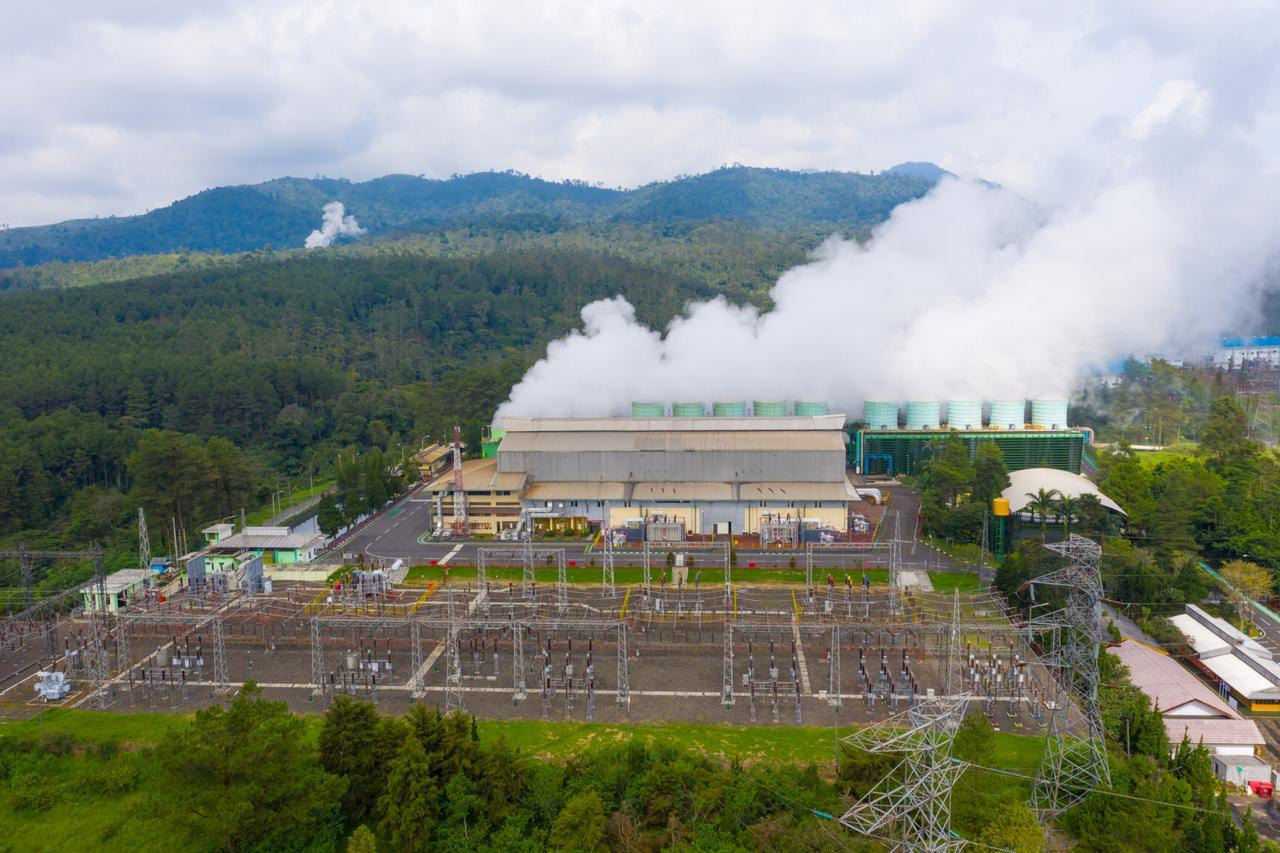Popular Reads
Top Results
Can't find what you're looking for?
View all search resultsPopular Reads
Top Results
Can't find what you're looking for?
View all search resultsThe emerald arc: Propelling West Java's carbon friendly ambitions
By aligning new industries with its geothermal abundance, West Java aims to reshape industries, delivering baseload renewable power for underwriting its new manufacturing hubs and low-carbon growth plans.
Change text size
Gift Premium Articles
to Anyone
I
t has been a bumper season for investment summits. From The ASEAN Solar Summit in July and the West Java Investment Summit on manufacturing hubs earlier this month to a number of investment gatherings tied to the ASEAN summit season in early September.
The West Java summit is of particular interest given the provincial administration earmarking 54,000 hectares just outside Jakarta as an eventual global zone for manufacturing, technology and heavy industries. This transformation aims to cater to international trade and commerce, with full-throttle support from both President Joko “Jokowi” Widodo and West Java Governor Ridwan Kamil.
With a price tag of more than US$5.4 trillion, the question is which funds are best placed to take advantage of this opportunity?
To answer that question let us look at Indonesia’s big investment story, battery metals and the electric vehicle (EV) industry. While its EV metals industry tries to decarbonize its reliance on coal-fired power it can only toy with solar panels at the periphery of smelting and leaching operations.
West Java is, however, poised to tap into its geothermal riches and a bold prospectus to transform manufacturing with a chain of clean energy-powered industrial parks.
As green investment funds have grown, they have widened to encompass new mandates for sustainable manufacturing, impact investments, resource-centric supply chains and nature-based solutions. This is the backdrop to West Java's audacious plan for high economic growth backed by green industrial parks and strategically developed special economic zones (SEZ).
With a commanding stake of 35 percent of Indonesia's industrial estates, West Java’s holdings amount to approximately 20,600 ha of brownfield. Under Governor Ridwan, the Rebana Project will link logistics and manufacturing hubs with the new Patimban Seaport, Kertajati Airport, transportation networks and waste management facilities that can drive investments into eco-friendly manufacturing.
West Java’s unique selling point rests on having access to reliable green energy. Nestled at the heart of a dynamic arc, West Java sits on a bed of reservoirs responsible for around 50 percent of the country’s geothermal resources.
By aligning new industries with its geothermal abundance, West Java aims to reshape industries, delivering baseload renewable power for underwriting its new manufacturing hubs and low-carbon growth plans.
Yet, this verdant arc is also a living, breathing source of investment risks. Geological and meteorological hazards interact as a network effect which can disproportionately impact the value of long-life capital assets. Landslides and earthquakes inflict damage in the interior, while coastal plains face the brunt of severe floods and subsidence.
These risks are further amplified by extreme weather phenomena from the like of a prolonged La Niña to the expected amplification of rainfall events by climate change.
While the allure of net-zero emissions in manufacturing dominates sustainable investing and environment social and governance (ESG) agendas, it is imperative not to lose sight of very real investment risks.
Offering avenues to drive resilience through intelligent climate-adaptation choices at the front-end of project design and selection presents an untapped but winning approach for scaling West Java’s industrial ambitions. Such measures need not entail burdensome standards that hinder capital deployment with hard-to-implement safeguards.
Leading commercial banks have rallied behind the Equator Principles (a risk-management framework adopted by financial institutions for determining, assessing and managing environmental and social risk in projects), which now guide proponents on how to assess and incorporate climate-risk management into the investment process.
In the Indonesian context, this integration can be accelerated by artificial intelligence (AI) location technology working concurrently with deal-structuring principles that assign risks to those best equipped to manage them.
In short, West Java’s drive to lead with intelligent manufacturing hubs can and should demonstrate tangible reductions in greenhouse gas emissions by harnessing its base-load renewable energy and resilience against disruptive climate-events throughout the investment lifecycle.
Given its enlarged contribution to Indonesia’s gross domestic product, the province stands a good chance of demonstrating best practices. By adopting climate-adaptation measures at the front-end of the selection cycle, West Java is well-positioned to deliver significant value-added growth aligned with the world’s deepest capital markets and the United States-Japan $20 billion Just Energy Transition Partnership with Indonesia, the launch of which has been postponed from mid-August to end of the year.
***
Tariq Khalil is cofounder of Mosaic Risk Analytics. Edward Gustely is managing director at Penida Capital Advisors. The views expressed are their own.











